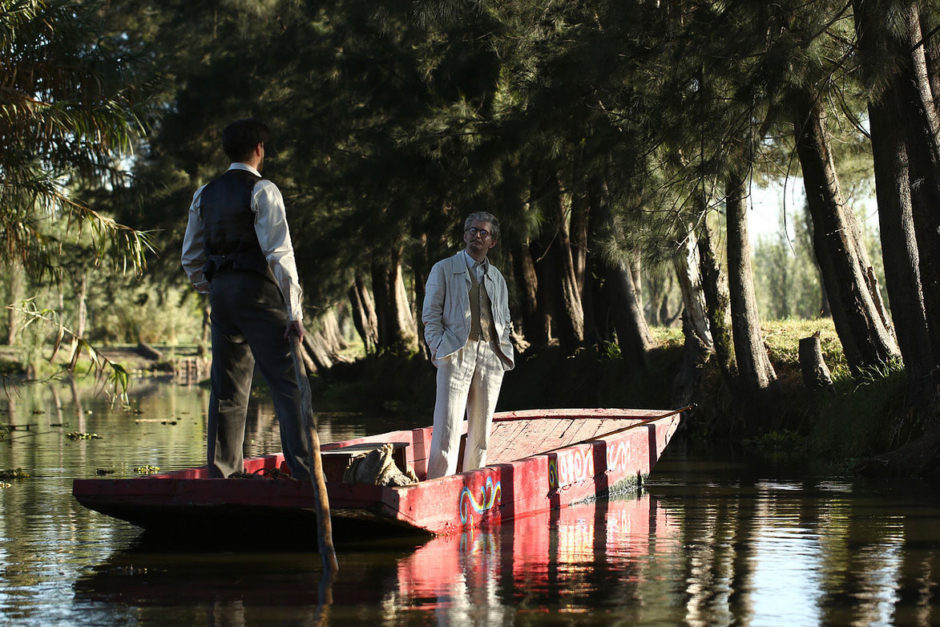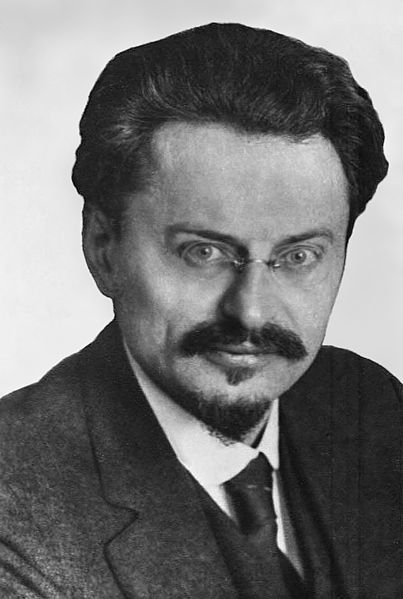
Russian revolutionary Leon Trotsky, a persona non-grata in the Soviet Union until the late 1980s, looms large in Trotsky, an eight-part Russian television series released last year to coincide with the 100th anniversary of the Bolshevik Revolution.
Now available on the Netflix streaming network, Trotsky is an ambitious, finely-crafted period piece featuring a stellar cast. Trotsky is portrayed somewhat theatrically by Konstanin Khabensky, one of Russia’s leading actors.
Trotsky’s career as a major figure in the Soviet Union — the successor state of Russia after 1917 — unfolds through interviews with him conducted by fictitious Canadian journalist Frank Jacson (Maksim Matveyev) in Mexico City in 1940. Jacson is a keen supporter of Joseph Stalin, Trotsky’s nemesis, but Jacson’s politics, though annoying, are irrelevant to Trotsky. He hopes his ideas and contributions will be immortalized by Jacson.
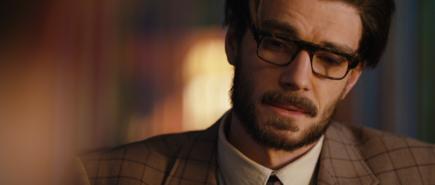
Trotsky spent the final three years of his life in Mexico, living there with his second wife, Natalia Sedova (Olga Sultulova). Hounded out of the Soviet Union after losing a power struggle with Stalin (Orkhan Abulov), Trotsky was certain that his arch rival would try to assassinate him. He was right, of course. In August of 1940, an assassin in the pay of the Soviet Union murdered him in his home. Several months before his death, a group of pro-Stalin Mexican communists had attempted to kill him.
Born in the Ukraine as Lev Bronstein, Trotsky was a dyed-in-the-wool agitator who sought to destroy the existing capitalist/czarist order and replace it with a utopian socialist state where justice and equality would prevail. Unafraid of violence, he says in the second episode, “The world will be changed by people willing to spill blood.”
Because he was Jewish in a country where Jews were generally reviled, Trotsky was accustomed to antisemitic jibes and taunts. While in jail in Odessa in 1898, a guard contemptuously refers to him as “the kike Bronstein.” The prison warden, however, treats him with respect and Bronstein adopts his surname.
During his formative years as a revolutionary, Trotsky was a social democrat, a Menshevik, in Russian parlance. Only on the eve of the revolution would he become a Bolshevik. Vladimir Lenin (Yevgeny Stychkin), the first Soviet leader, meets Trotsky while in exile in Paris, and is impressed by his oratorical powers. But it is Alexander Parvus, a wealthy Russian Jewish businessman previously known as Israel Gelfand, who places Trotsky on the path toward power and fame.
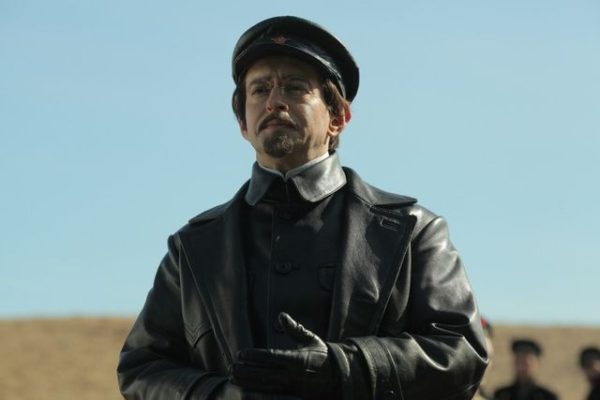
Trotsky veers back and forth between Mexico City and Russia, placing historical events into their proper perspective. The series takes occasional liberties with the truth, but essentially, it seems reasonably accurate.
An admirer of the working-class, Trotsky seeks to arm workers opposed to the autocratic Romanov dynasty. Trotsky’s father, a traditional Jew who’s beaten up by an antisemitic thug, begs him not to unleash forces that will change Russian society. Later, he tells his son that the Russian people will never accept a Jew as their leader. Natalia, the daughter of a rich merchant, pushes him in the opposite direction, urging Trotsky to be true to his ideals.
In a pivotal scene, Trotsky informs the provisional leader of the post-monarchist government, Alexander Kerensky, that he intends to “break his world into pieces.”
The issue of antisemitism appears and reappears. One of Trotsky’s sons is insulted by a fellow student. And a sailor who adores Trotsky says, “Sad, you’re a Jew.” Stalin, who’s depicted negatively, turns to Trotsky and says, “You’re no icon, like Lenin, but a Jew.” Even Lenin refers to the issue when he asks Trotsky, “How long will Russia tolerate a Jew as its leader?”
Frida Kahlo (Viktoria Polorazh), the iconoclastic Mexican painter, is cast as Trotsky’s lover. Realizing he’s a hunted man, she pleads with him to find a safer place.
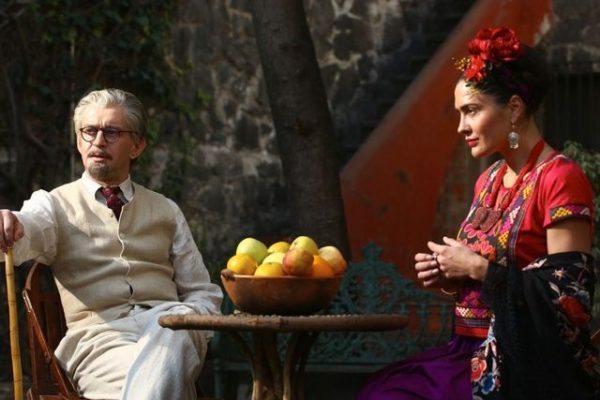
Trotsky was a man of many parts, and in the series he holds several key positions. He’s commissar of foreign affairs when Russia signs the 1917 Brest-Litovsk peace treaty with Germany. He’s commander of the new Red Army, which defeats the pro-czarist White Army during the brief civil war. He sits on the first ruling Politburo, along with six other men.
Trotsky’s personal relations with Lenin are ambivalent. The two men are not exactly on friendly terms, but they respect each other and Lenin regards Trotsky as a counterweight to Stalin, who despises Trotsky. After Fanny Kaplan injures Lenin in an attempted assassination, Stalin tries to prevent Trotsky from visiting him. It’s a telling harbinger of Trotsky’s bleak future.
As the Soviet state turns totalitarian and suppresses democratic freedoms, one of Trotsky’s sons joins the opposition. As a result, Trotsky’s relationship with him degenerates, much to Natalia’s distress.
All in all, Trotsky comes across as a self-absorbed, whip-smart politician whose radical tendencies were offset by a pragmatic approach to solving difficult problems. In the end, following Lenin’s untimely death, Stalin outflanked him, branding him as a counter-revolutionary and forcing him into exile.
Trotsky charts these developments with vigor and elan, giving viewers a series that is both entertaining and cerebral.
